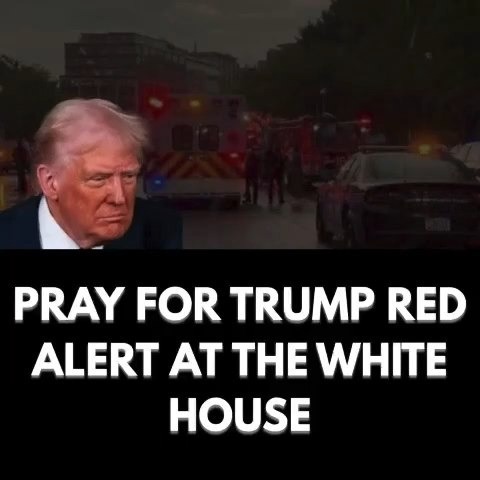Congress Preparing To Debate Crime Bill Amid Trumps DC Crackdown!
As the humidity of summer begins to fade from the nation’s capital, the political temperature is rapidly rising. Washington D.C., a city that serves as both the seat of global power and a local municipality for nearly 700,000 residents, is poised to become the epicenter of a fierce legislative struggle. President Donald Trump, advancing into the heart of his administration’s second-term agenda, is preparing to launch a comprehensive crime bill aimed specifically at the District of Columbia. This move signals a distinct shift from rhetorical criticism of “blue cities” to direct federal intervention, setting the stage for a high-stakes confrontation with Congress upon their return after Labor Day.
The genesis of this upcoming legislative package lies in the administration’s stated goal to transform Washington D.C. into a “beacon” of safety and order. For years, Republicans have pointed to crime rates in the capital as a symptom of failed Democratic governance. Now, with the levers of executive power firmly in hand, the White House is moving to operationalize that critique. On Wednesday, President Trump indicated that a legislative proposal is imminent, designed to serve as a model for urban renewal across the country. While the President offered limited specifics regarding the minutiae of the bill, he emphasized that the initial focus would be squarely on the District, describing the funding request as a “relatively small amount of money” intended to repair infrastructure, clean up the streets, and aggressively combat crime.
The political machinery behind this initiative is already in motion, involving high-profile allies in both the Senate and the Department of Justice. Senator Lindsey Graham of South Carolina has emerged as a primary architect of the legislative strategy. Following discussions with the President, White House staff, and Attorney General Pam Bondi, Graham outlined a dual-pronged approach: securing federal funding and reinforcing federal authority. He indicated that the White House is crafting a package to be delivered to him and Senator Katie Britt of Alabama. Britt’s role is pivotal; as the chair of the Homeland Security appropriations subcommittee, she holds the keys to the federal purse strings necessary to finance the “D.C. Security Fund.”
Senator Graham’s public comments on the platform X (formerly Twitter) underscore the ambitious scope of the project. “Together, we will try to shepherd the D.C. Security Fund through Congress to give President Trump the resources he will need to improve the safety and quality of life in our nation’s capital,” Graham stated. He framed the initiative not merely as a policy adjustment, but as a patriotic imperative, arguing that every American has a stake in ensuring Washington becomes a “shining city on a hill.” This rhetoric suggests that the administration views the D.C. crime bill as a symbolic victory—a proof of concept that conservative policing policies can succeed in deep-blue territory.
Attorney General Pam Bondi has reinforced this message, signaling that the Department of Justice will take an active, hands-on role in the District’s law enforcement operations. In a statement to Fox News Digital, Bondi confirmed that the DOJ is working in concert with the Metropolitan Police Department (MPD), federal law enforcement agencies, and Congress. Her objective is to “address the scourge of violent crime” and ensure safety for both residents and visitors. This collaboration points to a significant tightening of the relationship between federal prosecutors and local police, a dynamic that has historically been fraught with tension in the District.
However, the path to passing this legislation is fraught with procedural and political landmines. The timing of the proposal is critical. Congress is currently in recess and is not scheduled to reconvene until after Labor Day. When lawmakers return, they will immediately be confronted with a hard deadline: September 30, the end of the fiscal year. To avoid a government shutdown, Congress must pass a spending bill. It remains unclear whether the Trump administration will attempt to fold the D.C. crime package into this must-pass spending bill or introduce it as a standalone supplemental funding measure. Attaching it to the budget would raise the stakes considerably, potentially daring Democrats to shut down the government over the issue of D.C. autonomy.
The most contentious aspect of the upcoming debate revolves around the President’s authority over the D.C. police force. Currently, President Trump is operating under a temporary expansion of power that grants him direct control over the MPD—an authority that is time-limited to 30 days. To maintain this level of control, the President requires Congress to pass a joint resolution granting an extension. Without this legislative approval, the emergency powers will lapse, returning operational control fully to local officials. This deadline creates a pressure cooker environment for the September session.
While Republicans are largely united in their support for extending the President’s authority, citing the need for decisive action against crime, the Democratic opposition is expected to be fierce. For Democrats, this is not just a debate about crime statistics; it is a fundamental issue of Home Rule and local democracy. The District of Columbia has fought for decades to maintain autonomy over its local affairs. Ceding control of the police force to the White House is viewed by many D.C. leaders and Democratic lawmakers as a hostile federal takeover and a dangerous precedent.
The legislative math in the Senate presents a formidable hurdle for the administration. While the House may pass the measure, the Senate requires 60 votes to overcome a filibuster on a joint resolution. President Trump expressed optimism, predicting that Republicans would support the measure “almost unanimously,” but he acknowledged the partisan divide, stating, “We think the Democrats will not do anything to stop crime.” This framing suggests that the White House is prepared to use the vote as a political cudgel in the midterms, portraying any opposition to the bill as opposition to law and order itself.
Insiders suggest that Democrats are unlikely to provide the necessary votes to reach the 60-vote threshold to tighten Trump’s grip on the capital. They argue that public safety can be achieved without stripping the District of its self-governance. Consequently, the negotiation may shift toward the “D.C. Security Fund”—the financial component of the plan. Democrats might be more amenable to federal dollars flowing into the city for infrastructure and officer recruitment, provided it does not come with strings attached that permanently erode local authority.
As September approaches, Washington is bracing for a collision between executive ambition and legislative reality. The debate will likely transcend the specific details of street repairs or police funding, evolving into a broader argument about federalism, the rights of D.C. residents, and the divergent visions of urban governance held by the two parties. President Trump has staked significant political capital on his ability to “fix” Washington. Whether he can translate that ambition into law through a divided Congress remains one of the most significant uncertainties of the coming political season. The outcome will determine not only the future of policing in the capital but also the extent to which the federal government can intervene in the affairs of America’s cities.

